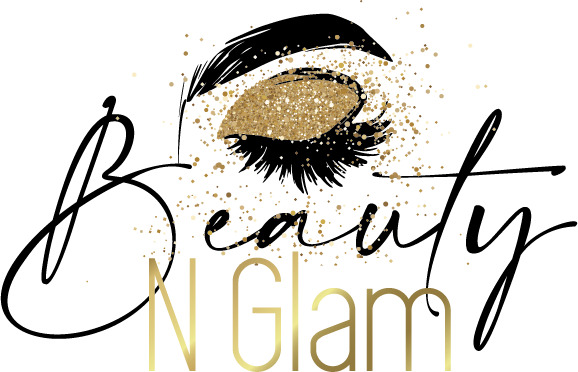Methylparaben
When it comes to popular skincare ingredients, chances are retinol, hyaluronic acid, and vitamin C are the first things to pop into mind. As such, methylparaben (just one of many seemingly-scary parabens on the market) might not even be a blip on your radar. A little intel: Parabens (methylparaben included) are preservatives found in hundreds of beauty products all over the world. While they help formulas last longer, they might contribute to skin sensitivities and breakouts. And yet, they often fly under the radar when considering what could be causing a breakout in the first place.
So, if when reading the back of a new product, you're thinking "methyl-what?" you're not alone. To help uncover how the little-known, commonly-used ingredient enhances every formula it comes into contact with (along with the potential hazards of incorporating it into your routine), we chatted with board-certified dermatologists Morgan Rabach and Noelani González. Keep reading for everything they have to say about methylparaben.
METHYLPARABEN
TYPE OF INGREDIENT: Preservative
MAIN BENEFITS: Prevents fungus growth, preserves ingredients, creates antibacterial formulas.
WHO SHOULD USE IT: It is recommended for all skin types except sensitive, allergic, and/or eczematous skin.
HOW OFTEN CAN YOU USE IT: Methylparaben is found in many daytime and nighttime products. As such, it can be used multiple times per day.
WORKS WELL WITH: Since methylparaben lengthens the 'shelf-life' of ingredients, dermatologists say that it works well with all ingredients.
DON’T USE WITH: Methylparaben is generally safe to use with all ingredients thanks to it's preserving nature.
What Is Methylparaben?
Methylparaben is one of the most popular preservatives in beauty products and food items. According to the National Library of Medicine, the ingredient occurs naturally in a handful of fruits—like blueberries—though it can also be created synthetically.1 It's found in everything from cream cleansers and moisturizers to primers and foundations and helps these products maintain their effectiveness. Rabach says that it's chock-full of anti-fungal and antibacterial properties, which work wonders to extend the shelf life of skincare, haircare, and cosmetic products.
MEET THE EXPERT
Morgan Rabach is an NYC-based board-certified dermatologist and the co-founder of LM Medical in Union Square, Manhattan.
Benefits of Methylparaben
Methylparaben is used to preserve the formula of a skincare product and is therefore not directly beneficial to the state of your skin's health.
Prevents fungus growth: Thanks to its antibacterial properties, Rabach says that methylparaben is a preservative that is added to many creams and cosmetic products to prevent fungus from growing.
Preserves ingredients: Given the way methylparaben prevents fungus from growing within creamy formulas, it's able to preserve ingredients and help consumers get the most out of their cosmetic purchases.
Is antibacterial: Since it's a preservative, González says methylparaben is effective at preventing microbial growth and germs such as bacteria and mold in skincare and cosmetic formulations.
MEET THE EXPERT
Noelani González is an NYC-based board-certified dermatologist and the Director of Cosmetic Dermatology at Mount Sinai West on the Upper West Side of Manhattan.
Side Effects of Methylparaben
While methylparaben is found in many skincare products, González says that it can be the cause of allergic reactions, such as contact dermatitis, so patients who have sensitive, reactive skin should steer clear of the ingredient. "It is always best to proceed with caution and always test a product on a small portion of your skin before applying it all over," she says.
Additionally, González points out that methylparaben can mimic the hormone estrogen, and potentially disrupt hormone function—though, there aren't enough studies that speak specifically to this correlation. So while the Journal of Applied Toxicology found parabens in human malignant breast tissue, there was no evidence that they are a direct root cause of cancer as the authors did not look for parabens in any other tissues in the body, meaning the study was inconclusive as to whether the chemicals occur only in tumor samples. Also of note: While long-chain parabens are linked to stronger estrogenic activity—the potency of which increases with the length of the paraben—methylparaben is a short-chain paraben, meaning it's less potent. Furthermore, FDA scientists state that after reviewing studies on the link between parabens and cancer, they "do not have information showing that parabens as they are used in cosmetics have an effect on human health.’
How to Use It
Using methylparaben is as simple as performing your regular AM and PM skincare routine. Since the preservative is in most creamy formulations, there's a pretty good chance that you've been using methylparaben without realizing it. What's more, considering it's in both daytime and nighttime formulas, it's safe to use daily, not to mention multiple times per day. Again, the only cause for concern is if you have reactive skin, in which case, you should check your labels for methylparaben to see if frequent use of the ingredient could be leading to any disruptions in the skin.
